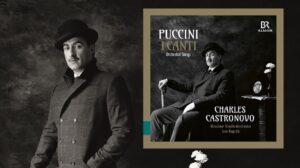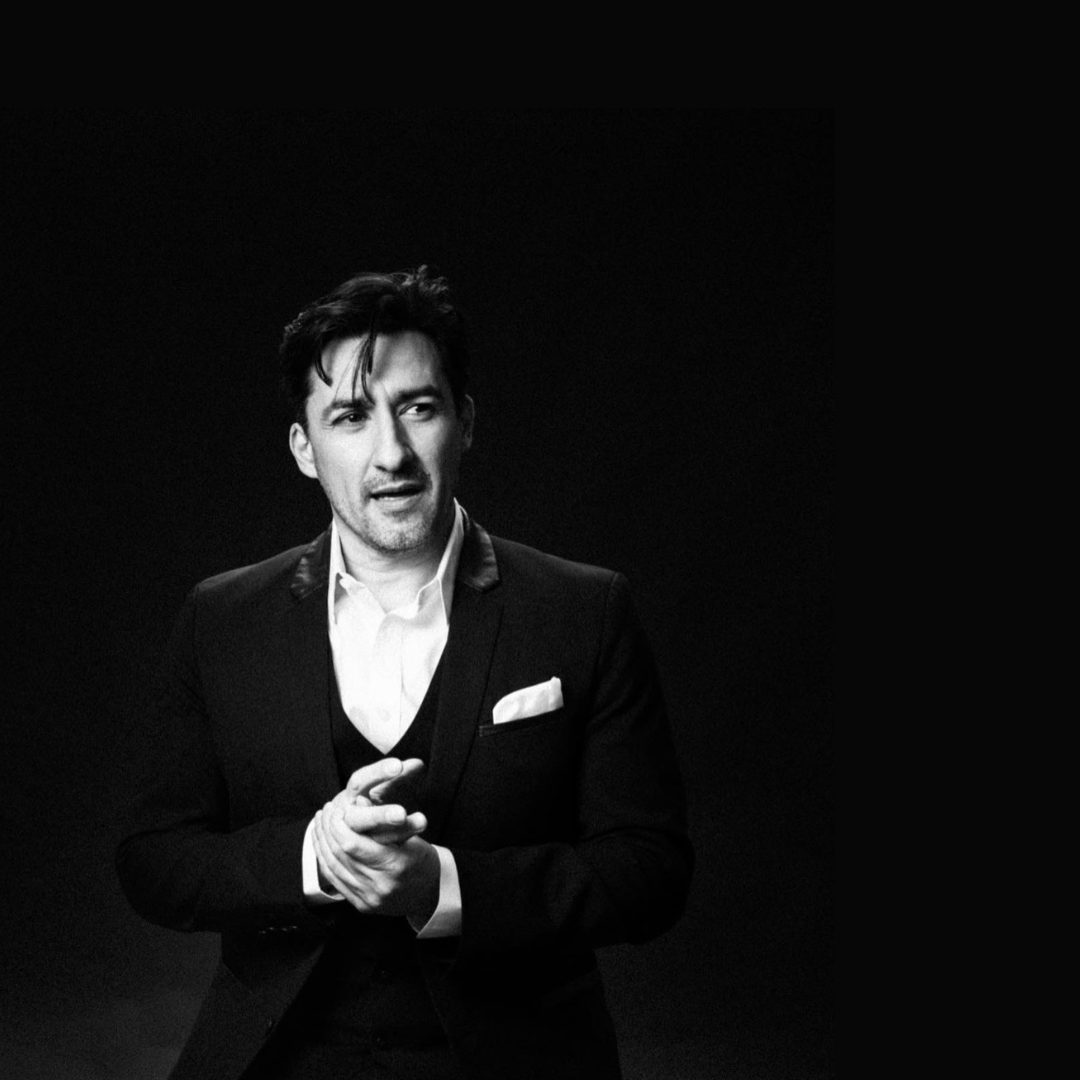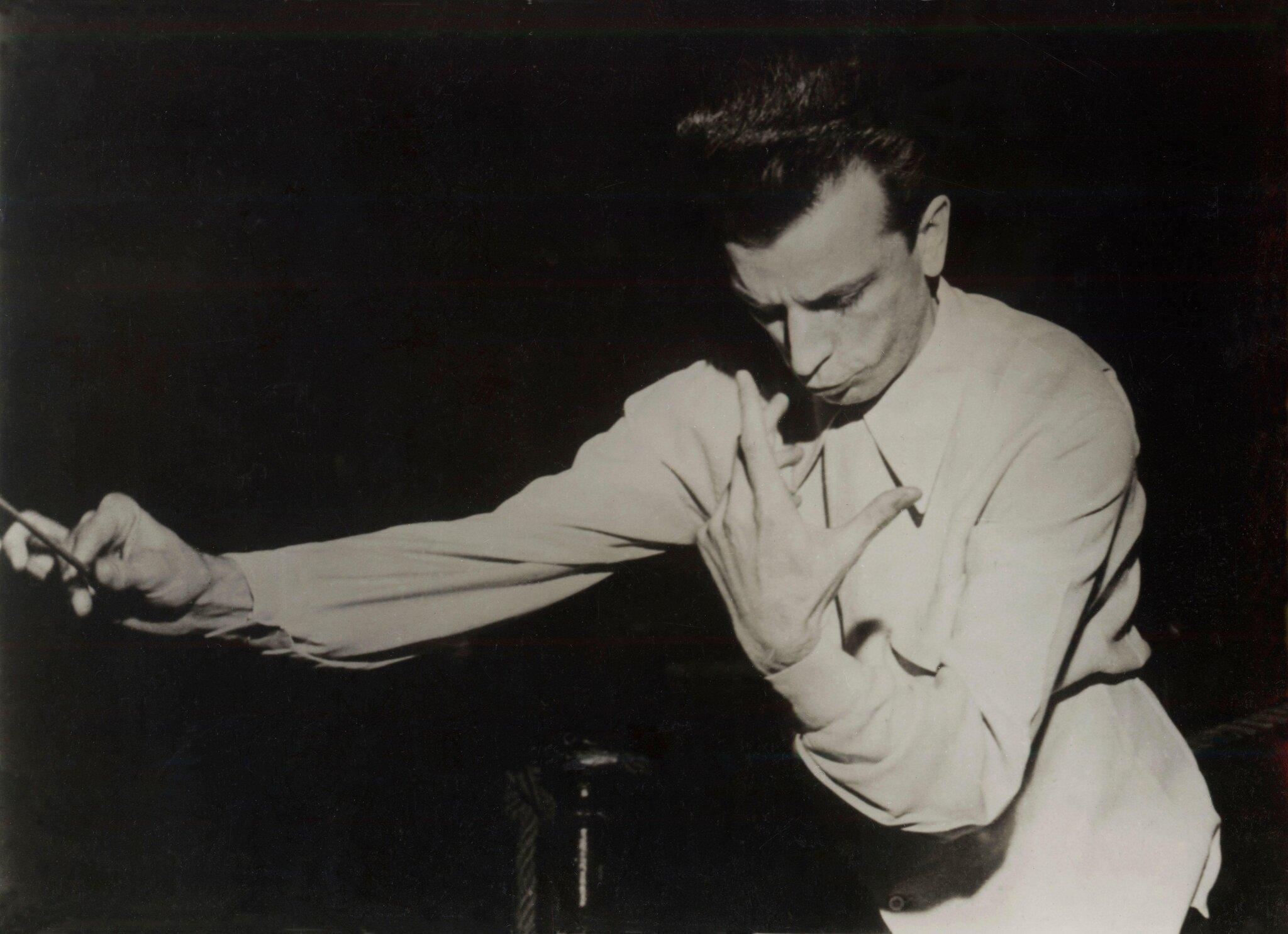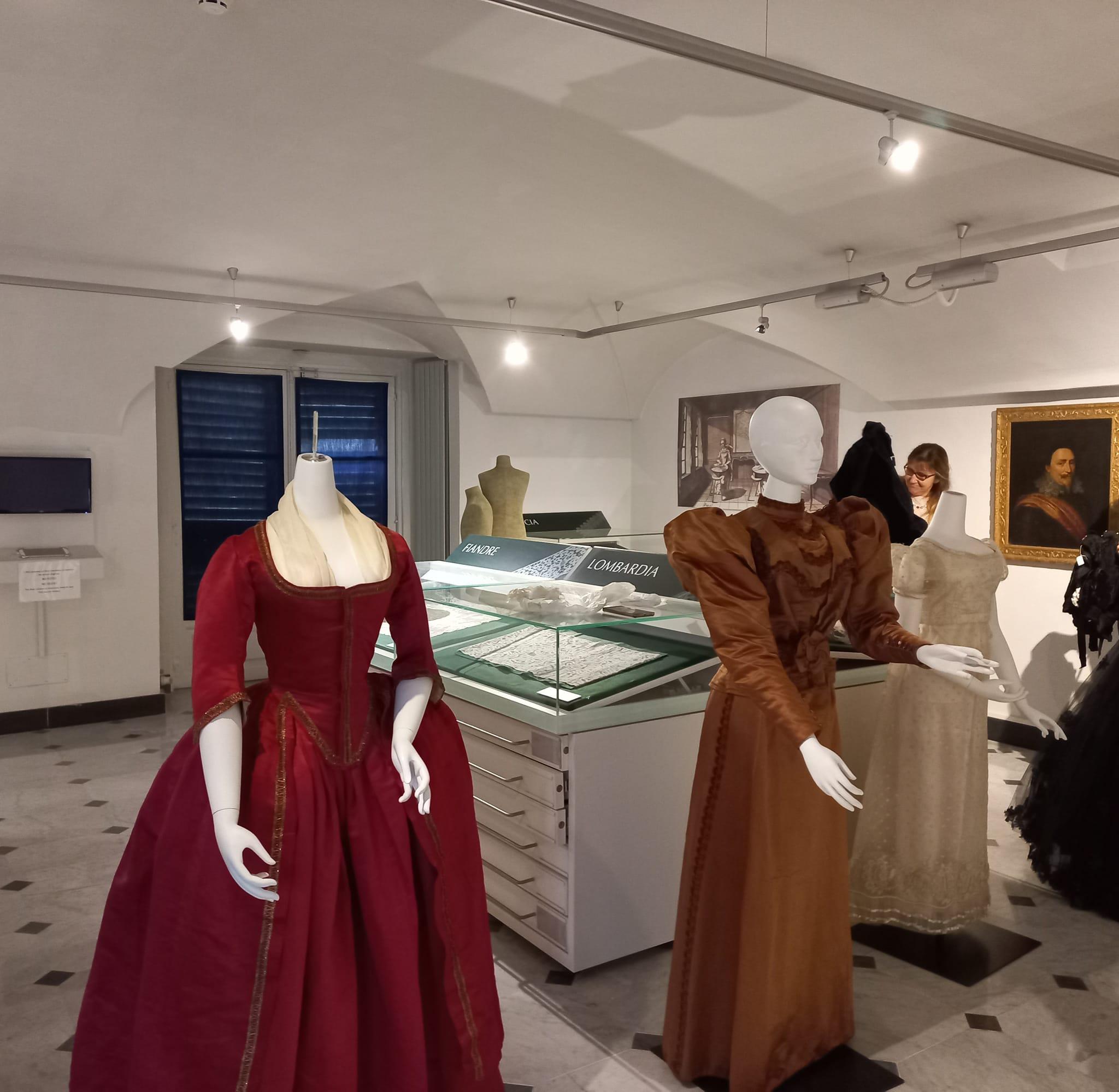Italian American tenor Charles Castronovo embodies a name that resonates with musicality, mirroring his illustrious career that spans from the humble beginnings as a resident artist with the Los Angeles Opera to commanding the stages of renowned venues like the Metropolitan Opera and, most recently, the Teatro alla Scala. His journey is a testament to talent, perseverance, and an unwavering commitment to artistic excellence. Today, Castronovo stands as a celebrated tenor, renowned for his diverse repertoire and his ability to infuse every performance with profound emotion. Embracing challenges with gusto, the word “no” seems foreign to his lexicon. I had the pleasure of catching up with him during his much-anticipated debut at La Scala.
Charles, you began your career as a resident artist with the Los Angeles Opera and subsequently joined the Metropolitan Opera’s Young Artists Development Program. How important and different were these programs for you?
“Los Angeles is where I gained most of my experience. I performed on stage in approximately 100 shows, mostly in minor roles, but it was fantastic. When I first started I was placed in the chorus (after doing an audition) and sang in both Pagliacci and Norma. I was then asked to understudy the roles of the first villager in Pagliacci and Flavio in Norma, which eventually led to me getting more parts. My first professional one was Barone Rouvel in Fedora with Placido Domingo singing in the opera, which was incredible. I then portrayed Remendado in Carmen and Bardolfo in Falstaff, small but important roles.
At that time, it wasn’t called a Young Artist Program, it was referred to as a Resident Artist Program. I spent around two and a half years in LA, participating in three or four public masterclasses. We didn’t have regular classes besides those, we received coaching from the pianist to prepare for our roles because we were really part of the ensemble and were continuously on stage with outstanding singers which allowed us to learn from the best. Being given these [minor] roles meant there was less pressure, giving me the freedom to experiment and improve. For instance, during the grand ensemble at the end of act three in Carmen, in ‘La libertè’, there is a high C and I remember trying to reach it without worrying too much about making a mistake because no one could hear me. This was invaluable. I also learned a great deal about stagecraft during my time there, as I was able to act without the burden of major expectations. This helped me become more comfortable on stage.
The Met program, on the other hand, was more structured as a young artist program, so there was lots coaching and things like that. I made my debut in New York as Beppe in Pagliacci in 1999, once again alongside Placido Domingo, but I only stayed at the Met for two years as I felt like Beppe was the highlight of my time there. By that point, I had had enough of small roles and wanted to sing bigger ones. In fact, during the program, the Met graciously allowed me to perform in other cities (I did Fenton, Nemorino, and Don Ottavio) and released me for a total of four weeks in the two years I was there. I will always be thankful to them for doing that.”

Rodolfo in La Bohème at the Metropolitan Opera, 2021
You’ve been a regular guest ever since your debut. Can you summarize your 25-year relationship with the New York opera house?
“After I left, I was gone for 10 years. I was never sure about doing the Artist Program to begin with; I had just done something similar in LA and thought it might have been a step back. I remember debating whether or not to join for one month before eventually accepting, but by the second year (the program usually lasts three years), I knew I wanted to leave and so I started doing loads of auditions. My manager at the time really wanted me to stay at the Met, but I didn’t. Once I realized we had different views, we parted ways, and that’s when I started working with my current manager, Alan Green (that was in 2001!). After that, my career took off, and I began singing all over Europe. It was exactly ten years later that I came back to the Met to sing as Don Ottavio, and I’ve been a regular guest ever since.”
Is there an opera house you call home?
“I would say that’s Munich now, for the volume of work that I’ve done and the number of debuts I’ve had there. I feel very comfortable there; the opera house team is amazing and works well together. I would also mention the Berlin Staatsoper where I’ve performed many times, but it’s a bit more spread out even though I live in Berlin. Covent Garden is also pretty special… I love singing in Europe because it means I can be closer to my kids Alessandro and Valentino.”
Do you manage to spend time with your family? Do your kids follow you around the world?
“Their mom and I used to take them everywhere when they were younger but now that they’re 16 and 10 it happens less frequently. They have their friends, school, and stability and I respect that. I prefer to go home rather than have them constantly on the move. I still get to spend a lot of time with them, we enjoy playing board/video games, cooking together or just hanging out. They are also very close, my sons, which is nice. And when I can’t be with them physically, I thank God for technology!”

Carlo in I Masnadieri at the Bayerische Staatsoper, 2023
Italian names even though they don’t live in Italy?
“Yes, for a few reasons. For my Italian roots, but also because the names sound good in my kids’ native languages (English, Italian, and Russian)… I mean, Alessandro and Valentino Castronovo already sound like opera or movie stars, don’t you think? I was also supposed to have an Italian name, Calogero, after my nonno, but my father didn’t want me to be teased at school so Calogero turned into Carlo and Carlo turned into Charles.”
Speaking of your roots, how was it growing up Italian American?
“I was born in 1975 so I believe my parents’ generation of immigrants were around 16-17 years old when they arrived in the States. My dad was 23 years old and my mom was just 18 when I was born, quite young. The prevailing tradition among these immigrants at that time was to assimilate as much as possible, striving to blend in. The mindset was completely different back then. I recall a moment from many years ago when I asked my dad why he didn’t speak Italian to me daily. He earnestly replied, ‘Because I didn’t want you to have an accent like mine and face the same struggles I did.’ Reflecting on this now, I realize that I would have learned perfect English in school but that wasn’t the prevailing attitude back then. And actually, when my father spoke with his family, it was never in Italian but in their Sicilian dialect.”
Even your father never taught you Italian, do you think your roots gave you a starting advantage over your fellow American colleagues?
“I don’t know if I’d call it an advantage but what I do have is a strong connection to the country, a sense of nostalgia. I visited Sicily several times with my family when I was growing up but it was when I went back alone at the age of 21 and took the train across the country that I truly felt a sense of belonging and a deep bond with Sicily and Italy, of course. Growing up surrounded by the language has trained my ear and accustomed me to the musicality of it. So maybe that’s where I had a bit of an advantage…
When I was coming here to Milan, there was an added weight on my shoulders. I was uncertain about how the audience would perceive me: would they question if I was American or Italian, was I more Charles or more Castronovo? Being Italian American means you are constantly caught somewhere in the middle, which left me feeling uncertain. But once I got here I decided to set my worries aside and focused on expressing all my emotions, and I think it went quite well.”
Your family must be proud. Are there any other singers besides you?
“Just me. There’s actually a famous story in my family: my grandfather was always asking his three daughters and one son ‘is there not one singer in my family?’ It was one of his greatest dreams. Unfortunately, he passed away when I was very young, but I like to think that his prayers were in some way answered.”

© Kate Goode
You once said that you enjoy singing in French more than any other language and that the French repertoire suits you better in general. Is that still the case?
“It’s actually starting to change. I think it’s because, at the time, I was singing quite a bit of French repertoire, but these days I’m singing more and more Italian [repertoire] and my preference is starting to change. I think the French one sits a little higher, in a way and although I still enjoy singing it, Italian is suiting me a little bit more. I think in the last few years my voice started to get a little ‘steelier’ (in a good way) just from slowly developing and it’s finding itself a little bit more comfortable in this repertoire.”
You have an extensive and diverse repertoire, both lyric and bel canto. How do you go about choosing which opera to sing? What are the things you take into consideration before accepting something, and is there someone you consult?
“I usually consult myself the most and reason why I feel confident about doing that is that I am such a recording nerd. I know so many recordings and I love those rare operas that most people don’t do or have never heard of. Part of it comes from being interested in doing something that isn’t your typical thing; but I am definitely my harshest critic. I’ve always been interested in doing something different and I love the whole idea of the arc and the tradition of different things. I don’t want to be categorized, even though I know I am. For instance, no one ever asks me for a Schubert recital, even though I adore Schubert, it’s usually always the same composers, that I love to sing, but sometimes you just want to do something different.
My manager is even more of an opera nerd than I am so we get along. When choosing what to sing next, I usually speak with him and my voice teacher, who knows my voice and the repertoire very well too. We’re very open-minded and always consider what the traditions were when the opera was written and what is being done now. And I always like to challenge myself. I was recently offered La Vestale, which might not be the most exciting tenor role and maybe it’s even not the perfect fit (but it was the debut of Corelli at La Scala) but I find that I will always gain something from these kind of experiences, like when I sang Médée or when I recorded some rare French operas (I hope that these kinds of recordings will be a sort of reference point for future generations).
Even now, if someone offered me Nemorino I would do it, but now that I sing Don José, no one asks for Nemorino anymore. I actually did one a couple of years ago during Covid: I wasn’t sure I wanted to at first, but then I thought: if Caruso, Bergonzi, and Pavarotti were all doing it at the end of their careers, why shouldn’t I? And so I did it, and it was great.”
Is there a role that you would like to sing but that is not right for you vocally or otherwise?
“Probably several [laughs]! Every tenor dreams of singing Otello but I don’t know if that could ever happen. But who knows! I dreamt of singing Don Carlo when I was young never thought it would be possible for me but then it happened and it went well, so I told myself, ‘if I can do this, who knows what else I can do.’ If I could, I would love to sing Lohengrin, which has a huge tradition, from light tenors to heavy ones.” – Is anything off your list? – “I don’t think so! But even more than Otello, I would love to sing Forza and maybe one day I will when I’m older. I don’t know if I have the right sound for some of these operas, but a lot of it is up to individual taste. I’ve always taken things slow and it’s served me well because I’ve been able to do things that I didn’t think I would be able to. So who know. I can’t predict what will happen at the end of my career.”
- Gabriele Adorno and Amelia (with Eleonora Buratto)
- Charles Castronovo with Luca Salsi and Daniele Abbado during rehearsals at La Scala
- Gabriele Adorno and Simon Boccanegra (Luca Salsi)
Tell me a bit about your long-awaited debut at La Scala? Is it as fantastic and nerve-wracking as everyone says it is?
“I was actually supposed to make my debut here with La Bohème, but then Covid hit. I’m not exaggerating when I say that I received the call informing me that the theater had closed and that everything had been canceled just as I was walking to catch my taxi.”– Fast forward to February 2024, and finally, you’re debuting at Teatro alla Scala – “I was quite excited and had, let’s say, some positive anxiety. I’d been dreaming about my La Scala debut since forever. I was very happy to be singing Gabriele Adorno because it’s a fantastic role, the music is incredible and it just allows the character and the singer to shine in a positive light, if performed well. The role doesn’t require you to carry the entire night, so I felt it was perfect for my first time. The opening night was a success and it only improved from there; I felt more relaxed after the first couple of shows. It was a big thing for me, Teatro alla Scala was one of the few places that I still had to tick off my list, at least in Europe. And I was very happy to debut with Verdi.”
But this year, the world celebrates the 100th anniversary of the death of Puccini, and you have released “I Canti” with BR Klassik, which is topping the UK charts. And it comes with a very particular cover, your very own tribute to the composer.
“It’s my favorite part of the CD! I was worried it might come off as a bit weird and arrogant, but I think it turned out just right.” – Was it your original idea? – “Absolutely. I’m lucky enough to be the artist in residence with the BR Klassik orchestra – which is amazing, I absolutely love working with them – and together with the Chief Conductor, we came up with this project to record an orchestrated version of Puccini’s songs, which has never been done before. When it came to the cover artwork, they were kind enough to give me full creative control. The idea struck me when I saw a picture of my nonno dressed in his Alpino uniform, bearing a striking resemblance to Puccini. So I thought maybe I could also pull off the look. I sketched out my vision and with the help of my girlfriend’s sister, a talented make-up artist/graphic designer, and her husband, a professional photographer, we brought it to life in just a few days. It was a real family affair! We make a great team and have already collaborated on some other exciting projects that I can’t reveal just yet. I’ve also been a huge comic book fan since childhood,and I think that influence comes through in how I choose to shoot my album covers.”
And you released it on vinyl as well, in a day and age where the CD industry is dying. Is this something that you strongly wanted?
“Yes. Even if we did a small batch (around 700 copies), I couldn’t resist making them. The listening experience you get from vinyl, even if your sound system isn’t top-notch, is unbeatable. And today, everyone can afford a record player.”

You quote Giuseppe Di Stefano as one of your favorite tenors and role models. Is it safe (or perhaps bold) to say that you are the tenor who is continuing his legacy in some way?
“Well, there are some caveats to that statement because I wouldn’t necessarily try to copy his vocal technique, as an artist it’s crazy. I’ve never hidden the fact that I have imposter syndrome, so I would never ever think to put myself in the category of someone like him. My intention is to sing with emotion more than anything else and for me, Di Stefano epitomizes that. He had an incredible technique, probably not always the safest, but when it was there it was just insane. My goal when singing is first and foremost to convey emotion and if I can refine my technique and strengthen my voice to do more, I’m happy. That is what I’m striving for although I never feel fully satisfied; so whenever I have time, I really work hard on trying to improve myself but the main goal is always emotion. When I was younger, I would listen to singers with the best technique, now it’s completely opposite. I’d rather hear a voice with some issues than one with perfect technique that doesn’t touch me. With age, experience and, again, some technique I’ve been able to open myself up to express more emotion drawn from my own life experiences. Despite being an extrovert, there’s a part of me that I keep hidden but is now starting to crack open. You have to give a bit of yourself in order to reach people. So I guess, in that sense, I am continuing the great Di Stefano legacy: he’s Sicilian, he sings from the heart, and that’s what I try to do.”

In 2019, you won the International Opera Awards for Best Male Singer. Did receiving this prestigious recognition change anything for you since then?
“I was utterly shocked when it happened, I couldn’t believe it. I never imagined I would get nominated, let alone win, because I’m just not that type of tenor so when it happened I didn’t even have a speech prepared. It was an immense honor and the awards ceremony was a blast, but I can’t say that anything inside of me shifted, except for a very warm feeling of gratitude towards those who voted for me. I will never forget it, and the award is safely displayed in my music room at home in Berlin.”
What’s coming up next for Charles Castronovo?
“Paris for another Simon Boccanegra, which is a great relief for my brain, then Tosca in Munich for my debut as Cavaradossi and Madama Butterfly in Madrid. I have some exciting things in the works but I can’t say what they are just yet.”








Nessun Commento